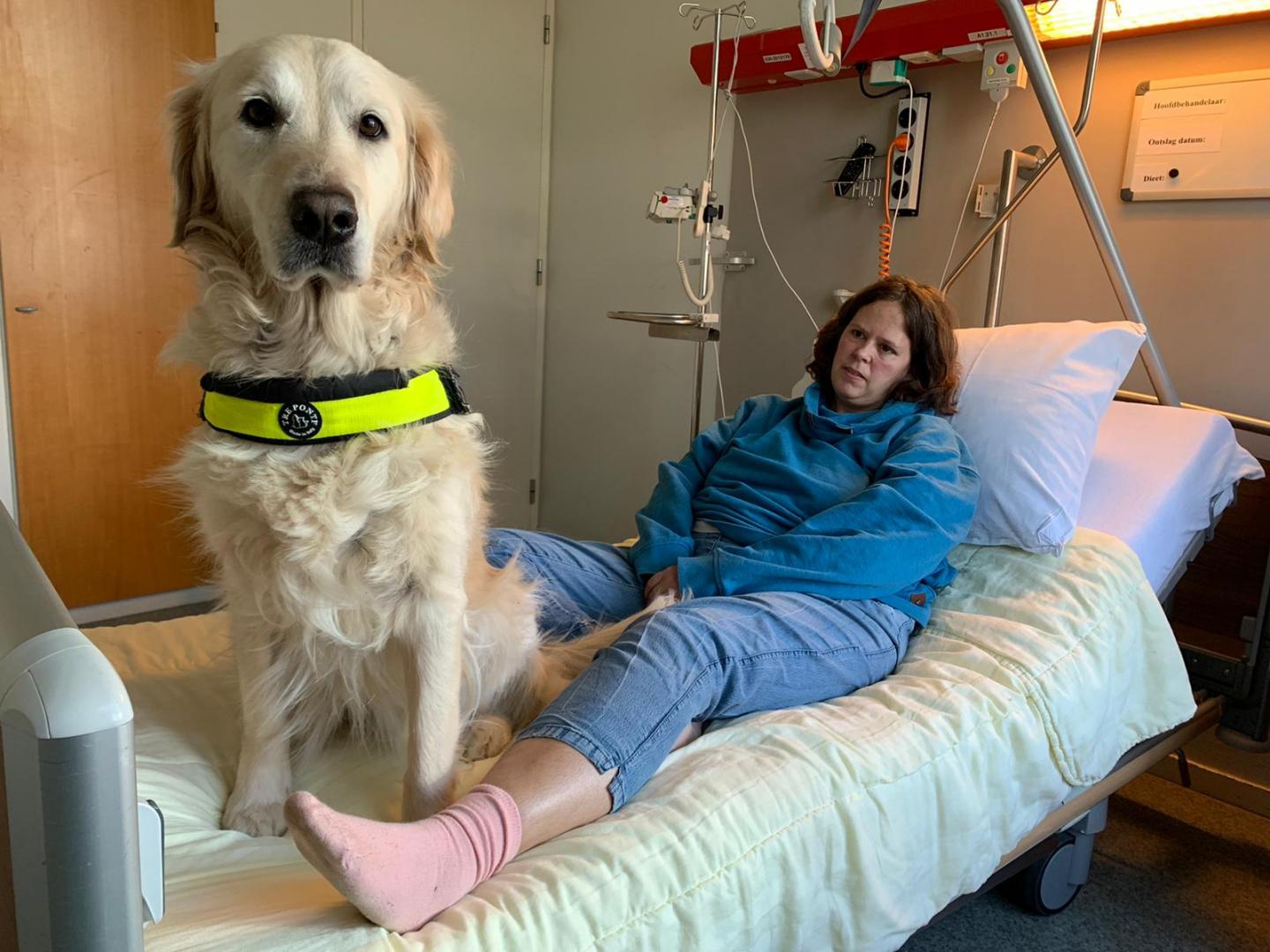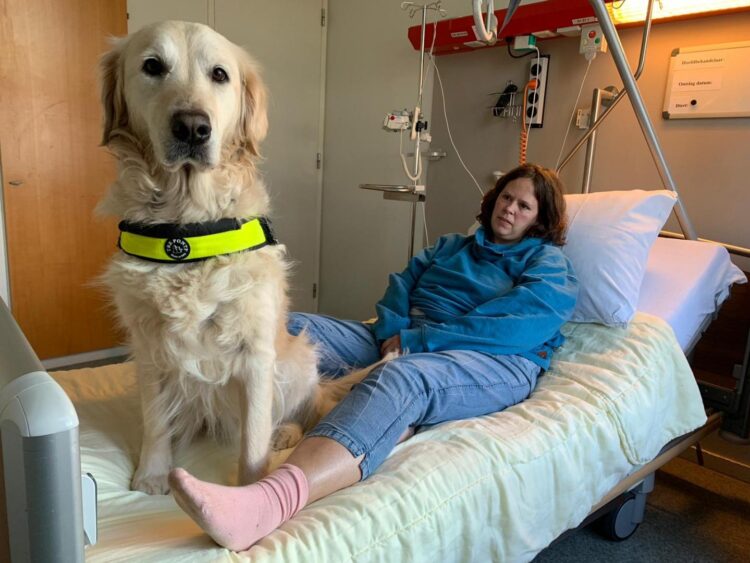Assistance dogs’ paws are cleaner than their users’ shoe soles, Utrecht University researchers discover

Credit: Private photo of Iris and Sandy – may be re-used.
Over 10,000 people in Europe use an assistance dog; think of guide dogs for people with a visual impairment, hearing dogs for people with a hearing impairment, medical response service dogs and psychiatric service dogs.
According to a UN-agreement and the Dutch law, these dogs are welcome in stores, hospitals and other public places. However, in practice, many assistance dog users and their dogs are regularly refused entry. In the Netherlands, four out of five assistance dog users indicate that they regularly experience problems with this.
Often, hygiene reasons are given as the main argument for refusing entry to assistance dogs. Research by Utrecht University now shows that the paws of assistance dogs are cleaner than the shoe soles of their users, and thus, paw hygiene is no reason to ban assistance dogs from hospitals.
To investigate this, Jasmijn Vos, Joris Wijnker and Paul Overgaauw of Utrecht University’s Faculty of Veterinary Medicine took samples from the paws of 25 assistance dogs and the shoe soles of their users. For comparison, they also investigated an equally large group of pet dogs and their owners. Vos and her colleagues examined the samples for poop bacteria (Enterobacteriaceae), which are very common outdoors, and for an important diarrhoeal bacteria (Clostridium difficile).
“The dogs’ paws turned out to be cleaner than the soles of their shoes,” says Jasmijn Vos, Masters student at Utrecht University. “This makes the hygiene argument that is often used to ban assistance dogs from public locations invalid.” Moreover, the diarrhoeal bacteria did not occur on the dogs’ paws whatsoever, and only once on a shoe sole.
81% of assistance dogs are refused
Dutch assistance dog users were also surveyed about their experiences. 81% are still regularly refused entry to public places with their dog, even though this is prohibited by law. This is mainly down to lack of knowledge on the part of the person refusing entry: lack of knowledge on what an assistance dog is, how it can be recognised, and about the rules of law.
The study also shows that assistance dog users constitute only a small fraction of the total number of patients in Dutch hospitals. Should they decide to bring their assistance dog to the hospital, or elsewhere, this should be made possible; assistance dogs are usually well trained and are no more of a hygiene hazard than people!
###
Research publication
Vos SJ, Wijnker JJ, Overgaauw PAM. A pilot study on the contamination of assistance dogs’ paws and their users’ shoe soles in relation to admittance to hospitals and (in)visible disability. Int. J. Environ. Res. Public Health. 2021; 18(2): 513. Full text: https:/
Media Contact
Iris Kruijen
[email protected]
Original Source
https:/
Related Journal Article
http://dx.





